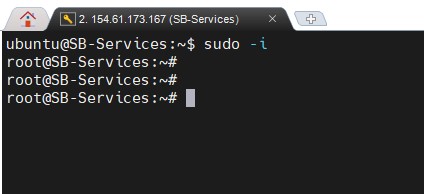Self-Signed SSL
Introduction
A Self-Signed SSL Certificate is a digital certificate that is signed by the entity creating it, rather than by a trusted Certificate Authority (CA). These certificates are typically used for testing, internal development, or private environments where trust chains with a public CA are not necessary.
-
You can use the same 'NFS VM' to generate an SSL certificate for your domain. This step is optional, and if you already have a certificate for your Stackbill domain, you can skip this section.
-
Connect to the NFS VM using the SSH credentials specific to your environment. For Stackbill, the default operating system for VMs is Ubuntu 22.x, and the default username is ubuntu
-
Once logged in as the ubuntu user, switch to the root account for elevated privileges. Use the following command.
sudo -i

- Installs the OpenSSL tool, a widely used library for generating cryptographic keys and certificates.
apt install openssl -y

- Generate a Private Key using the below command.
openssl genrsa -out private.key 2048

- Generate a Certificate Signing Request using the below command.
openssl req -new -key private.key -out request.csr

- Finally, generate certificate using the below command.
sudo openssl x509 -req -days 365 -in request.csr -signkey private.key -out certificate.crt
- Save the private.key and request.csr file for future stackbill deployment.